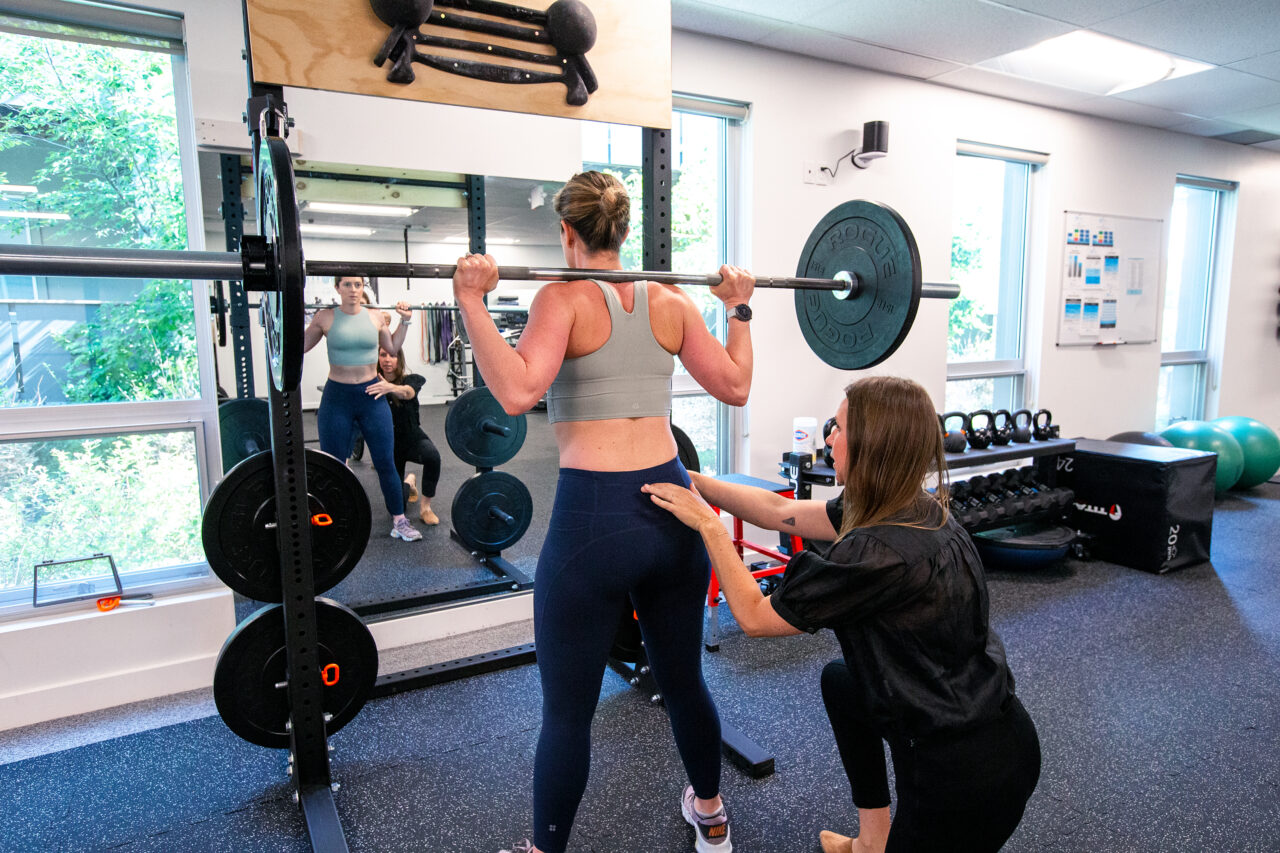Athletes practice “just in case” (JIC) peeing before workouts to avoid bathroom breaks during training or competition. However, this habit can harm your pelvic floor health. A recent systematic review on urinary incontinence (UI) in female athletes reveals how behaviors like JIC peeing can disrupt bladder function, leading to bladder urgency and pelvic floor strain—key contributors to incontinence.
How “Just in Case” Peeing Affects Your Pelvic Floor
The study “Urinary Incontinence in Female Athletes: A Systematic Review on Prevalence and Physical Therapy Approaches” by Fizzia Syeda and Unnati Pandit is a systematic review examining the prevalence of urinary incontinence (UI) in nulliparous female athletes and its management through physical therapy interventions.
The study found that high-impact sports like CrossFit, gymnastics, and volleyball are strongly associated with stress urinary incontinence (SUI). JIC peeing exacerbates this issue by disrupting the natural coordination between the bladder and pelvic floor muscles (PFM).
Here’s how it happens:
- Bladder Reconditioning: Emptying the bladder unnecessarily can retrain it to send signals of urgency prematurely, even when it’s not full. Over time, this can create a pattern of frequent, unnecessary urination.
- Pelvic Floor Muscle Weakening: JIC peeing prevents the pelvic floor from adapting to normal bladder fullness. For athletes, repetitive high-pressure activities like jumping or lifting already strain these muscles. Combining this with poor bladder habits further increases the risk of leakage.
- Performance Anxiety Link: The review highlighted that athletes often avoid seeking help for UI due to stigma, opting for quick fixes like JIC peeing. This perpetuates the issue and can lead to reliance on ineffective coping strategies like fluid restriction or absorbent pads.
Research Highlights
The systematic review analyzed nine studies on female athletes and found that UI prevalence ranged from 5.7% to 80%, depending on the sport. High-impact movements commonly associated with urinary incontinence in female athletes include jumping, running, landing, sudden directional changes, and activities involving repetitive maximal abdominal contractions. They concluded that pelvic floor muscle training (PFMT), combined with education on pelvic anatomy, is an effective solution for managing and preventing UI in this population.
What You Can Do to Protect Your Pelvic Floor
To safeguard your pelvic floor and enhance performance:
- Practice Bladder Training: Extend the time between bathroom trips to help retrain your bladder to hold urine until it’s truly necessary to void. Aim for intervals of 2–4 hours, adjusting based on hydration and activity levels.
- Incorporate PFMT: Strengthen your pelvic floor with exercises like Kegels, which target the muscles that support the bladder. A physical therapist can design a tailored program for you.
- Address Anxiety Holistically: Replace JIC peeing with pre-performance routines that include deep breathing, mindfulness, or visualization to manage nerves without impacting bladder habits.
- Avoid Fluid Restriction: Dehydration can irritate the bladder, paradoxically increasing urgency. Stay hydrated and focus on timing fluid intake appropriately before workouts.
Why It Matters
The research underscores the importance of addressing UI openly. Far from being an inevitable part of athleticism, UI is preventable and manageable. By ditching harmful habits like JIC peeing and embracing pelvic floor-friendly practices, you can reduce your risk of leakage and perform at your best.
Mend Recommendation: Athletes, it’s game day for your health! If you’re experiencing pelvic floor symptoms like leaking during running, weightlifting, or jumping, it’s time to take action. Don’t sit on the sidelines—discover the root cause and get back to performing at your best. Our expert physical therapists specialize in running mechanics, weightlifting, high-level exercise programming, and pelvic floor function.
Schedule your appointment today and make this the day you reclaim your confidence and strength. With two Mend clinic locations serving Boulder County—including Boulder, Longmont, Louisville, Lafayette, Superior, and Erie—we’re ready to be your ultimate coaching team!
Empower your performance by caring for every part of your body—including the ones you don’t see.
Reference
Syeda F, Pandit U. Urinary Incontinence in Female Athletes: A Systematic Review on Prevalence and Physical Therapy Approaches. Cureus. 2024;16(7):e64544. doi:10.7759/cureus.64544

